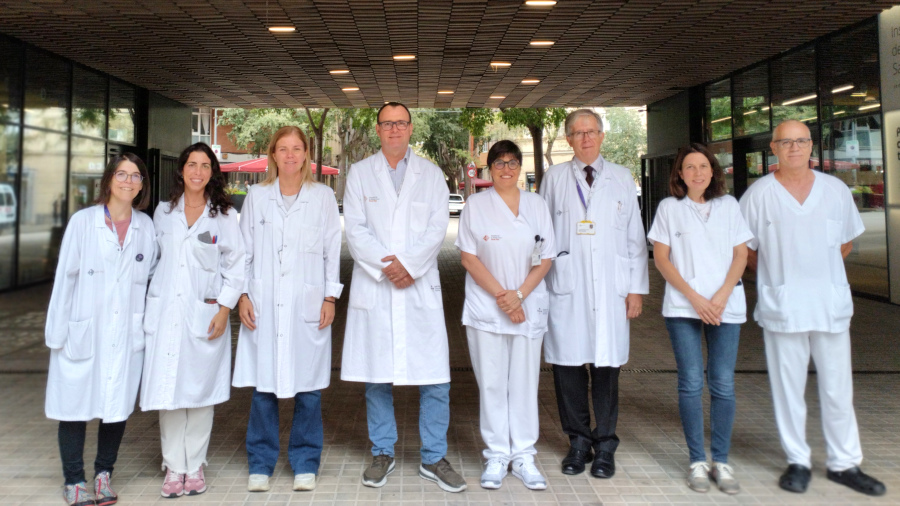Pioneering clinical trial to treat cancer in patients with Fanconi anaemia
The Sant Pau Research Institute will begin a new Phase I/IIB clinical trial for Fanconi anaemia patients diagnosed with head and neck cancer. The study, known as an AFAN trial, is led by UAB Department of Genetics and Microbiology Professor Jordi Surrallés, head of the Cancer Predisposition Syndromes Group and scientific director of the Sant Pau Research Institute.

The trial will evaluate the safety and efficacy of the afatinib drug in patients with Fanconi anaemia and squamous cell carcinoma in locally advanced, unresectable or metastatic stages, located in the oral cavity, oropharynx, hypopharynx or larynx. It is the first clinical trial worldwide to be conducted for this indication. The study, which was approved by the Spanish Agency of Medicines and Health Products (AEMPS) this past August, began recruiting patients in October, in a process that will last approximately four years.
This project arises from joint research between the Sant Pau Research Institute (IR), the Universitat Autònoma de Barcelona (UAB), and the Centre for Biomedical Research Network (CIBER), which led to the discovery of a new therapeutic use for afatinib, a drug currently administered to treat certain types of lung cancer in the general population. It is, therefore, a drug repositioning project, from a common disease to a rare disease with no therapeutic alternative.
Fanconi anaemia is a rare genetic disease caused by a defect in DNA repair. It causes bone marrow malfunction and patients are especially prone to developing head and neck tumours at very young ages. Due to this genetic defect, cancer patients cannot undergo chemotherapy and therefore have no effective treatments beyond surgery, making it the leading cause of mortality among the adult population affected by this disease.
The new use of afatinib developed by researchers from these institutions has resulted in a patent recently granted in Europe and pending in the United States. In addition, as it is a rare disease, the project has the designation of afatinib as an Orphan Drug by the EMA, which benefits the development times of the new use of this drug.
The clinical trial will be carried out with the key collaboration of the company Boehringer Ingelheim, the current owner and marketer of afatinib, which will provide the drug to be administered to patients during the study. This is a very important step forward for this project in the treatment of patients with Fanconi anaemia who have developed this type of cancer and currently have no therapeutic alternative. For the trial to run smoothly, patients will be treated not only at the Hospital Sant Pau, but also at the Hannover University Hospital, located in Germany, where EMA approval is also expected shortly.
The AFAN research team led by Dr Jordi Surrallés includes Dr Georgia Anguera, principal investigator of AFAN, and Dr Óscar Gallego (both oncologists from the Medical Oncology Service of the Hospital Sant Pau); Dr Núria Berga and Dr María Estela Moreno from the Hospital Sant Pau Pharmacy Service; and also the collaboration of Dr Javier León from the Otorhinolaryngology Service and Dr Ramón García-Ecudero from the Research Institute of the Hospital 12 de Octubre, who will perform the genomic analysis associated with the trial.
Several entities have worked together to make all the preclinical research and current AFAN clinical trial (EUCT No.: 2024-511477-29-00) possible, including companies such as Boehringer Ingelheim as well as the various institutions and patient associations that provided financial support to the clinical research project, such as the Instituto de Salud Carlos III (ICI22/00076, funded by the European Union - NextGenerationEU) and the Fanconi Cancer Foundation in the USA.
The UAB, with Sustainable Development Goals
Good health and well-being